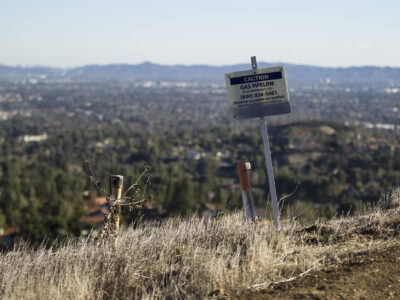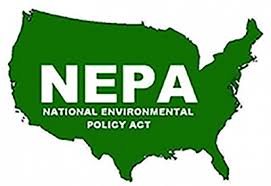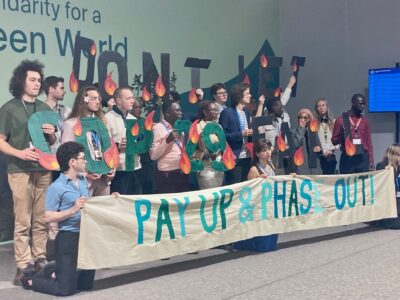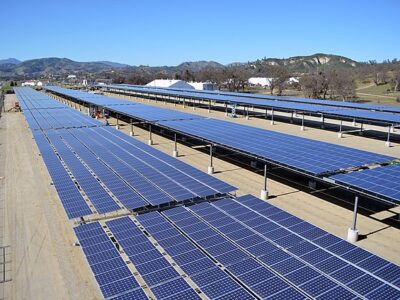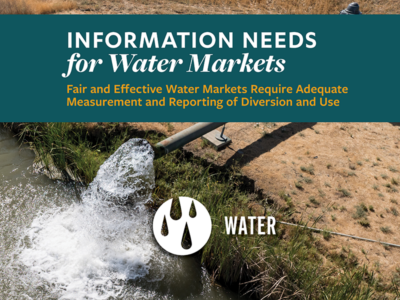CPUC Should Set a Date for Closing Aliso Canyon
A proposed decision on the gas facility gives too much deference to SoCalGas regarding the future of gas demand and misses an opportunity to set a clear mandate.
The Aliso Canyon gas storage facility blowout in 2015-16 was the largest methane gas leak in the history of the United States. In addition to the climate effects from the methane leakage — 109,000 metric tons, the equivalent of burning over 1 billion gallons of gasoline — there were tremendous health impacts on neighboring communities and even throughout California. In 2019, Governor Gavin Newsom called on the California Public Utilities Commission (CPUC) to acce...
CONTINUE READINGNEPA and Loper Deference
The CEQ regulations will continue to receive deference. The question is how much.
When the Court overruled Chevron, one effect was to raise a crucial question about how courts should apply NEPA. For decades, courts have deferred to regulations issued by the Council on Environmental Quality (CEQ). The basis for that deference was a bit fuzzy, but now it is much fuzzier. This is a technical issue but one with far-reaching consequences for how NEPA operates. It's also an issue that is likely to be raised in the oral arguments in a current Suprem...
CONTINUE READINGThis Big Oil Sponsorship Just Got Dirtier
The Dodgers do business with a company that’s been polluting LA neighborhoods — and the climate — for years. Now, Phillips 66 faces federal charges of illegal wastewater dumping.
The Los Angeles Dodgers’ most prominent sponsor — Phillips 66, which owns 76 gas — was just indicted for violating the Clean Water Act by allegedly dumping hundreds of thousands of gallons of industrial wastewater from its Carson oil refinery into the LA County sewer system. The details are spelled out in a six-count indictment against the Houston-based company returned by a federal grand jury. “If convicted of all charges, Phillips 66 would face a statuto...
CONTINUE READINGClimate Politics and Electoral Realignment
Some deep-seated dividing lines in U.S. politics seem to be eroding, with potential implications for climate policy.
There is a growing evidence that U.S. political alignments are shifting. Basically, Democratic support has eroded in core cities , a bit among Black voters, and more among Latino voters. These trends have been offset by the movement of some groups of white voters and suburban voters to the Democrats. The net result was to give Republicans a small edge in the election, though it was hardly a massive wave. The changes are probably most dramatic in terms of social cl...
CONTINUE READINGWhat’s Making this COP Especially Difficult?
Notes from COP29 in Baku, where the subject of real money, U.S. politics, and other tricky factors are converging.
My UCLA colleagues Ted Parson, JP Escudero and I just returned from Baku. Most of our work there related to side talks on advancing methane regulation (and our UCLA project on that topic), but we also got a sense of how the central negotiations were unfolding. As the New York Times and others are reporting, Week 1 talks did not go well. Here are the core difficulties impeding progress according to folks we spoke with on the ground there. First, the central topic o...
CONTINUE READINGA To-Do List For Biden
The clock is ticking, but there's still time for a few important last things.
Biden has a little over two months left in office. There are some important things he can do in the meantime to protect the environment from the next administration. Here are a few of the most important efforts. Get as many judges as possible through the Senate. There are currently 48 judicial vacancies. Biden needs to get as many of them as possible filled because the courts will be hearing a lot of environmental cases. Spend as much clean energy funding as po...
CONTINUE READINGHow Do We Reduce Cost and Time to Build Transmission Lines?
The Burden on Ratepayers Is Not Sustainable
As California continues, and even accelerates, on its path to 100% renewable energy, it must grapple with the costs and burdens on electricity ratepayers. Among the largest rate impacts is the cost of new transmission carrying renewable power to customers. We need new approaches to transmission financing that avoid rate shocks and ratepayer backlash. With support from Net-Zero California and Clean Air Task Force, CLEE released a new report: Improving Transmission ...
CONTINUE READINGCommunity Benefits Tools and Policy Drivers:
Select mechanisms can help ensure that energy projects deliver meaningful benefits for California communities
This is the third in a series of posts detailing CLEE’s new set of resources on Equitable Climate Infrastructure Investment. Communities and local and state governments are increasingly turning to community benefits tools to support an equitable climate transition, catalyze substantive long-term investments in community priorities, and achieve effective, durable projects. CLEE's new report, Community Benefits Tools and California Clean Energy Projects, analyzes...
CONTINUE READINGU.S. Energy Industry Trends To Watch In A 2025 Trump Presidency
New Trump administration policies will impact the energy industry, but maybe not in the ways Trump supporters expect, writes Guest Contributor Allan Marks.
Allan Marks is a partner at Milbank LLP and a lecturer at UC Berkeley School of Law and UCLA School of Law. This article was originally published in Forbes, for which he is a contributor, on November 7, 2024. When Donald Trump returns to the Oval Office in January 2025, his second presidency will have widespread implications for the energy industry, especially new investments, but not necessarily in the ways his supporters might expect. A renewed emphasis on fossil...
CONTINUE READINGMeeting information needs for water markets: Understanding water diversion and use
New CLEE report examines a prerequisite for fair and effective water markets
by Nell Green Nylen and Molly Bruce Water scarcity is a growing problem for agriculture and ecosystems across the U.S. Southwest. In many areas, unsustainable water use has overstretched local water supplies, and climate change is making these supplies more volatile. Water markets have the potential to enhance climate resilience by helping water users adapt to short-term variations in water supply and by easing long-term transitions to more sustainable levels of wa...
CONTINUE READING



